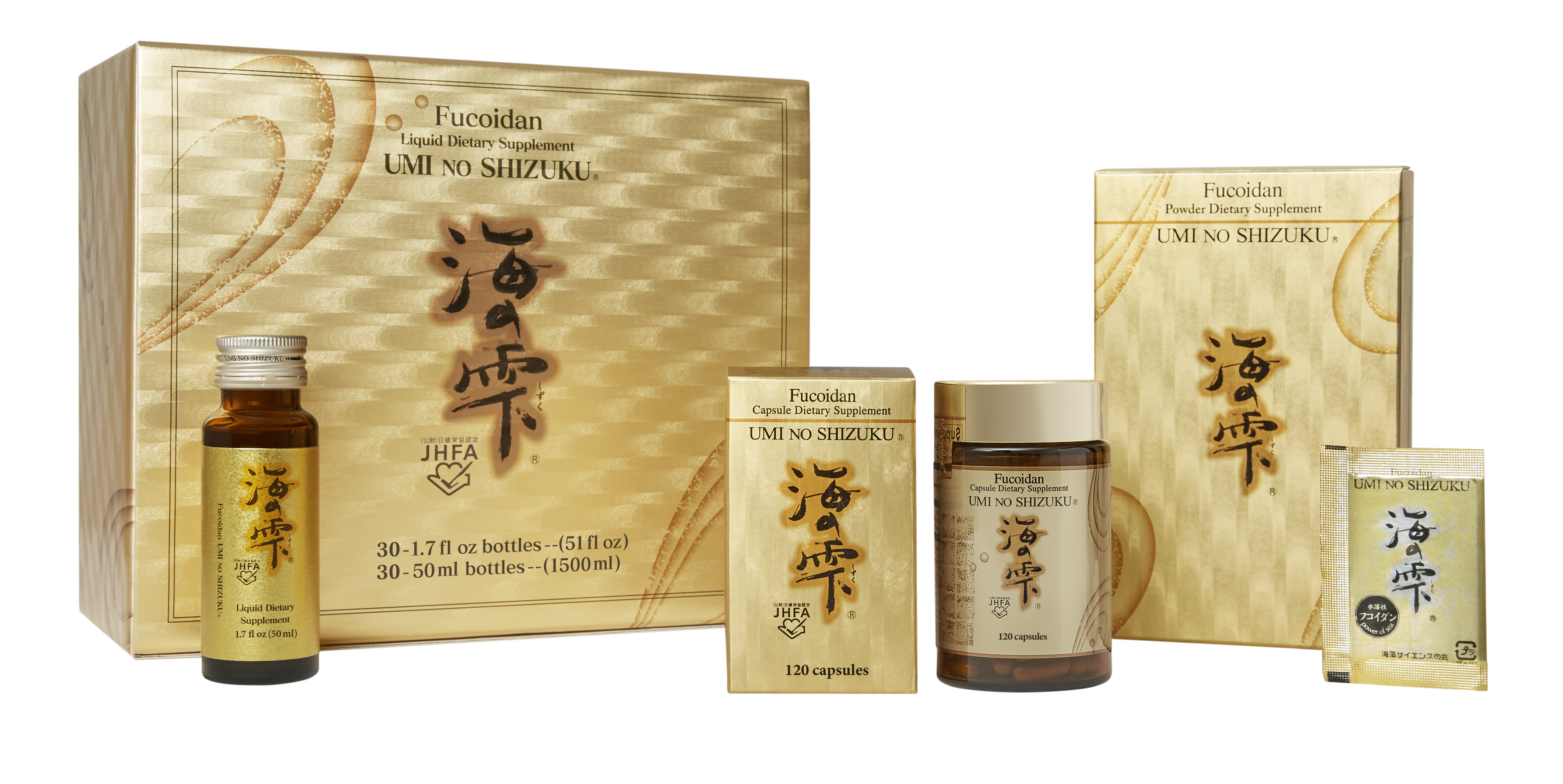What is Fucoidan?
What is Fucoidan?
Fucoidan is a sulfated polysaccharide mainly found in various species of brown seaweeds such as Mozuku, Wakame, Kombu, and Bladderwrack. In other words, Fucoidan is a slime component similar to mozuku and other dark brown seaweeds’ surfaces and is considered a water-soluble dietary fiber. Chemically, it is a polysaccharide that primarily consists of fucose and sulfate.
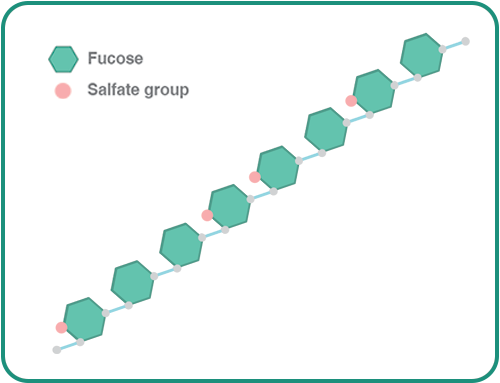
The Benefit and Efficacy of Fucoidan

Brown seaweed had been traditionally a part of the Japanese diet for many centuries. It is praised for its health benefits and therapeutic effect. The book “Shen Nong Ben Cao Jing (The Divine Farmer’s Herb-Root Classic),” about Chinese medicines, mentions the ability of seaweed to heal tumors.
The substance of fucoidan was officially discovered and isolated in 1913, by Professor H. Z. Kylin of Uppsala University in Sweden.
Since then, numerous scientific studies are being conducted about fucoidan’s health benefits.
Behind Okinawan Longevity
Okinawa boasts one of the highest longevity in the world. While there are many factors behind Okinawan’s longevity, their diet (Okinawan diet) consisting of rich seaweed is believed to be one of the most significant influential factors.
What is Fucoidan Mix AG?
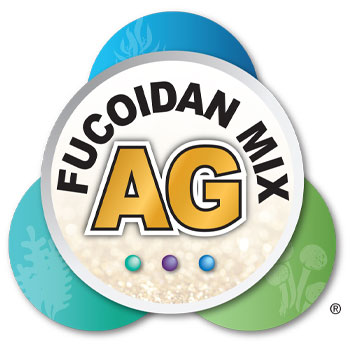
Not every Fucoidan supplement is the same
Fucoidan Mix AG is formulated to optimize your immune health
Fucoidan Mix AG is the primary component of Fucoidan Umi No Shizuku.
After finding the promising health benefit of brown seaweeds and its extract: fucoidan, our research team at Kyushu University ran countless tests in an extensive search of the best fucoidan formula that can support the immune system.
The tested ingredients include reishi mushroom, ginseng, Curcuma longa(turmeric), isoflavones, propolis, and other potent ingredients that were believed to support the immune system. The test results clearly showed that the one blend stood out from the rest: the blend/combination of Okinawa mozuku, mekabu, and Agaricus mycelium extract. That’s how the unique Fucoidan Mix AG formula was born.
All of our Fucoidan products contain Fucoidan Mix AG as the active ingredient, distinguishing us from other Fucoidan supplements.
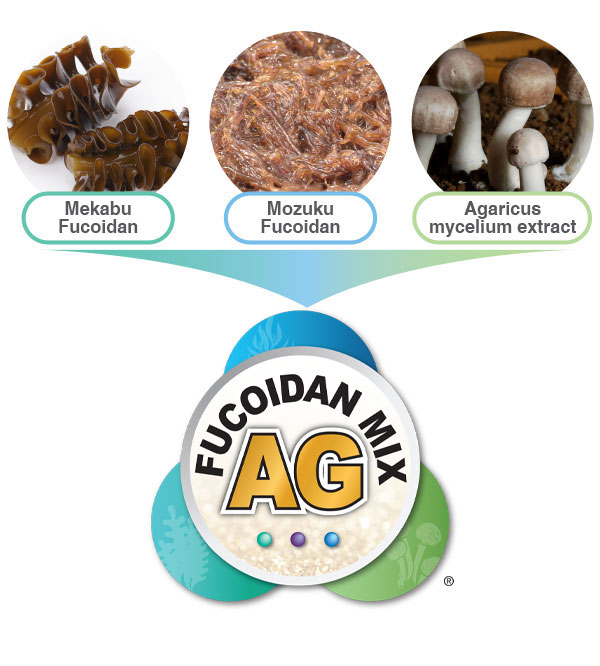
Continuous Scientific Research
Our endeavor continues. We are tirelessly working on improving our formula and developing more effective dietary supplements with Fucoidan.
More about Fucoidan (brown seaweed extract)
Fucoidan is a polysaccharide extracted from various brown seaweeds, composed of several monosaccharides including fucose, xylose, galactose, sulfate ester groups, and uronic acid. Depending on which brown seaweed they are originated, each fucoidan has a unique chemical structure. Due to these chemical component differences, the function and effectiveness also vary, and mixing different fucoidan from different brown seaweed can support the effectiveness of fucoidan.
Types of Fucoidan (brown seaweed extract)
Below are some of the popular fucoidan types. Each fucoidan contains slightly different components and effectiveness.
In most of the studies, fucoidan extracted from mozuku and mekabu is reported to support the immune system.
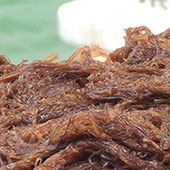
Mozuku (Cladosiphon okamuranus) Fucoidan
Mozuku (Cladosiphon okamuranus) is a type of edible seaweed that is typically gained from Okinawa and Mozuku Fucoidan is known for its effect on immune health. Okinawa Mozuku is bigger, thicker, and tends to have more fucoidan components than other kind of mozuku species.
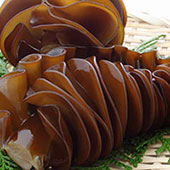
Mekabu (Undaria pinnatifida) Fucoidan
Mekabu is sprouting part of wakame seaweed at their roots. While wakame seaweed is widely known as a “leafy seaweed” often used in Japanese traditional miso soup and Korean soup. Mekabu looks ruffled just like a cone of a pine tree.
Mekabu fucoidan contains more sulfated groups and shows strong immune support than other seaweed. Studies show that its effect increases when mixed with other types of fucoidan.
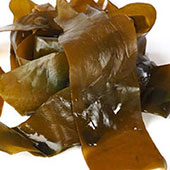
Kombu (Laminaria japonica) Fucoidan
Kombu is edible kelp mostly from the family Laminariaceae and is known to be one of the prominent sources of dashi broth in Japanese cuisine. Kombu, especially Gagome Kombu, is also used to extract Fucoidan. However, kombu contains a relatively small amount of fucoidan. Therefore, It is hard to mass-produce fucoidan products out of only kombu.
At Umi No Shizuku, we have tested many different types of Fucoidan and picked the most potent formula for Fucoidan Mix AG.
High-molecular Weight Fucoidan Vs Low-molecular-weight Fucoidan
Fucoidan is a high-molecular polysaccharide, with fucose as the main constituent/component, and is characterized by a high content of sulfated fucose. By its definition, Fucoidan needs to be high-molecular to work effectively as it should in the body.
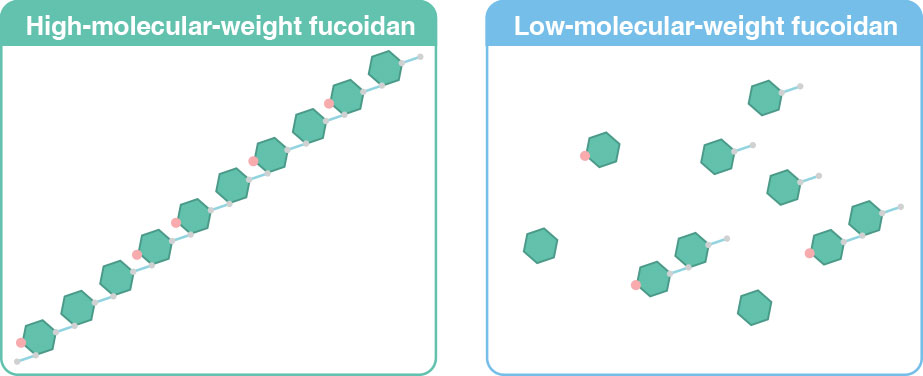
A polysaccharide is defined as a “type of sugar produced by at least 10 monosaccharides bonding together through a dehydration process.” In other words, fucoidan is a chain of at least 10 monosaccharides, including the main constituent/component fucose.
Some of the Fucoidan supplement brands promote themselves as “low-molecular-weight fucoidan” and claim that low-molecular-weight fucoidan helps the body absorb Fucoidan.
However, these “low-molecular-weight” fucoidan have only two or three monosaccharides bonding together. This is significantly different from Fucoidan’s natural form which contains at least 10 monosaccharides.
At Umi No Shizuku, we focus on delivering the fucoidan as they currently exist in nature as much as possible. Therefore we only use high-molecular-weight fucoidan to get the complete benefit of fucoidan.
Beware of similar and imitation products
In recent years, many products similar to or imitating UMI NO SHIZUKU Fucoidan and UMI NO SHIZUKU Essential Nutrition have appeared in online shops, mail order shops, and physical stores.
The main examples of these are products that use “UMI NO” or “FUCOIDAN” in their names, and products that use pamphlets, package designs, and websites closely resembling ours. Be aware that these products have no connection with our company. We invite you to contact our Customer Support with any concerns.
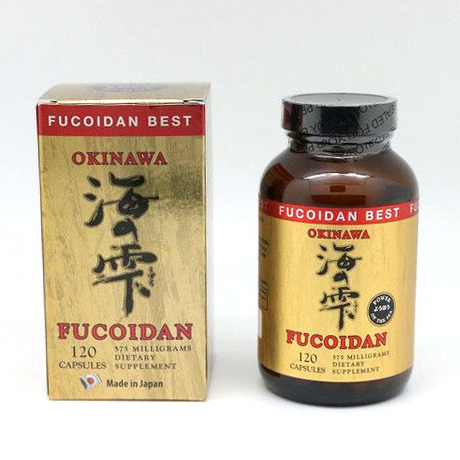
Example 1) This product is NOT Fucoidan Umi No Shizuku
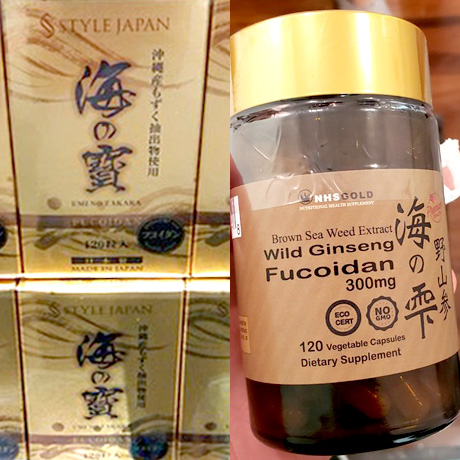
Example 2) This product is NOT Fucoidan Umi No Shizuku
The differences between UMI NO SHIZUKU Fucoidan and similar/imitation products
(1) Proprietary active ingredient: Fucoidan Mix AG
UMI NO SHIZUKU Fucoidan has created the original active ingredient Fucoidan Mix AG, which blends mozuku fucoidan, mekabu fucoidan, and Agaricus mycelium in a proprietary ratio to create a maximum synergistic effect. The blending ratio and manufacturing methods are trade secrets. Other products attempting a blend of similar ingredients do not deliver the same effect as UMI NO SHIZUKU Fucoidan.
(2) Evidence
In close cooperation with universities and medical facilities, UMI NO SHIZUKU Fucoidan has obtained a variety of evidence confirming clinical trials, safety, and efficacy. We have also undergone certification by third-party bodies such as JHFA and SGS regarding safety, amount of active ingredient, radiation, heavy metals, etc.
(3) A record of sales worldwide for 20 years
Since the start of sales in 2002, UMI NO SHIZUKU Fucoidan has built an 20-year track record of sales around the world. This is an achievement made possible by our product’s authenticity, which satisfies customers with high quality, safety, and efficacy.
How to determine authentic products
Products carrying the UMI NO SHIZUKU logo and hologram sticker, with the text “Imported and distributed by Kamerycah, Inc.” are authentic UMI NO SHIZUKU Fucoidan products.
Please contact our Customer Support with any concerns. Please avoid the use of auction websites and personal sales websites when purchasing.
Fucoidan powder manufacturing process
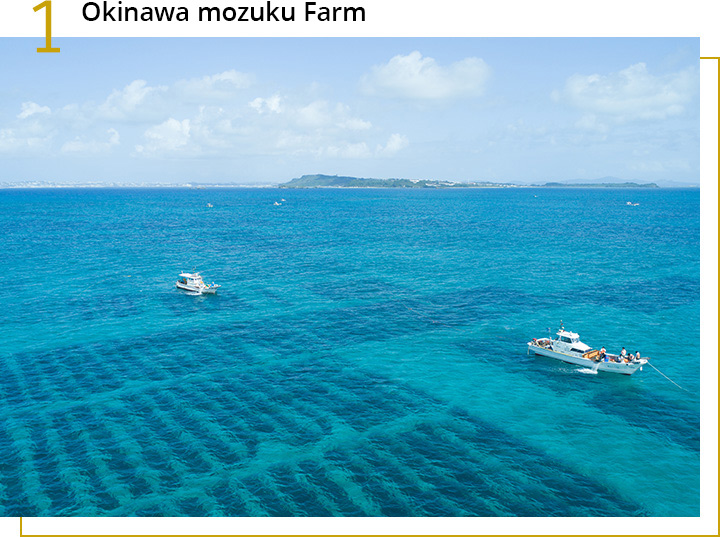
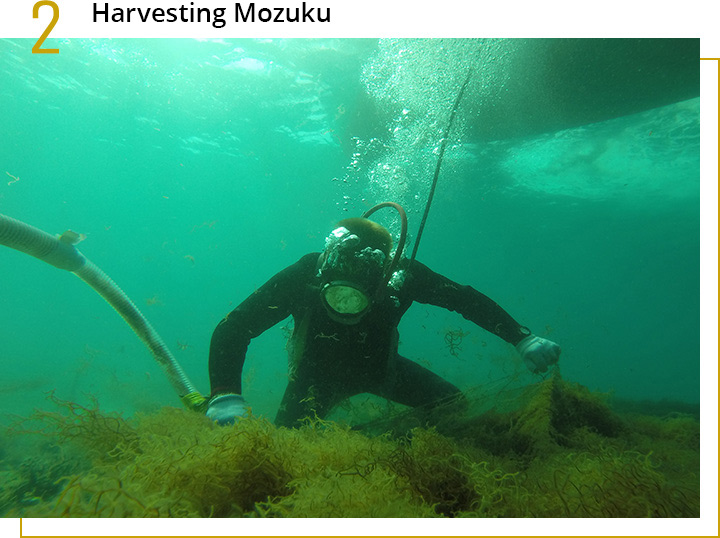
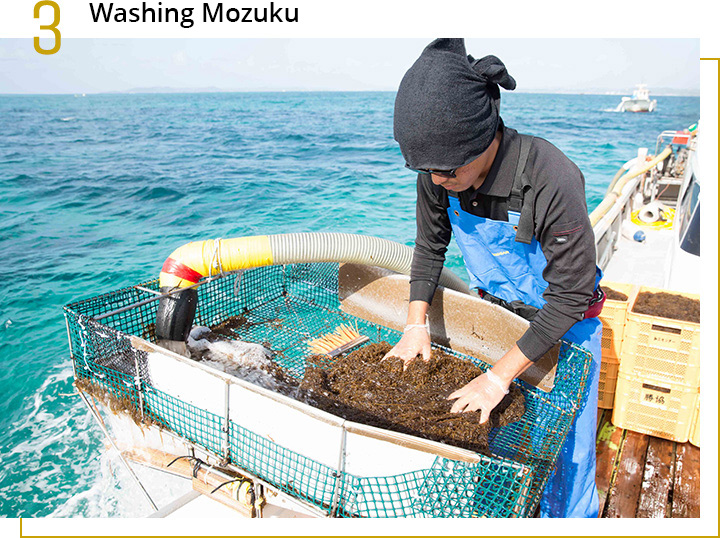

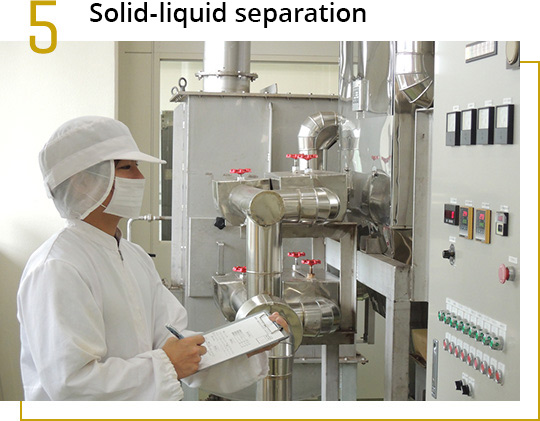


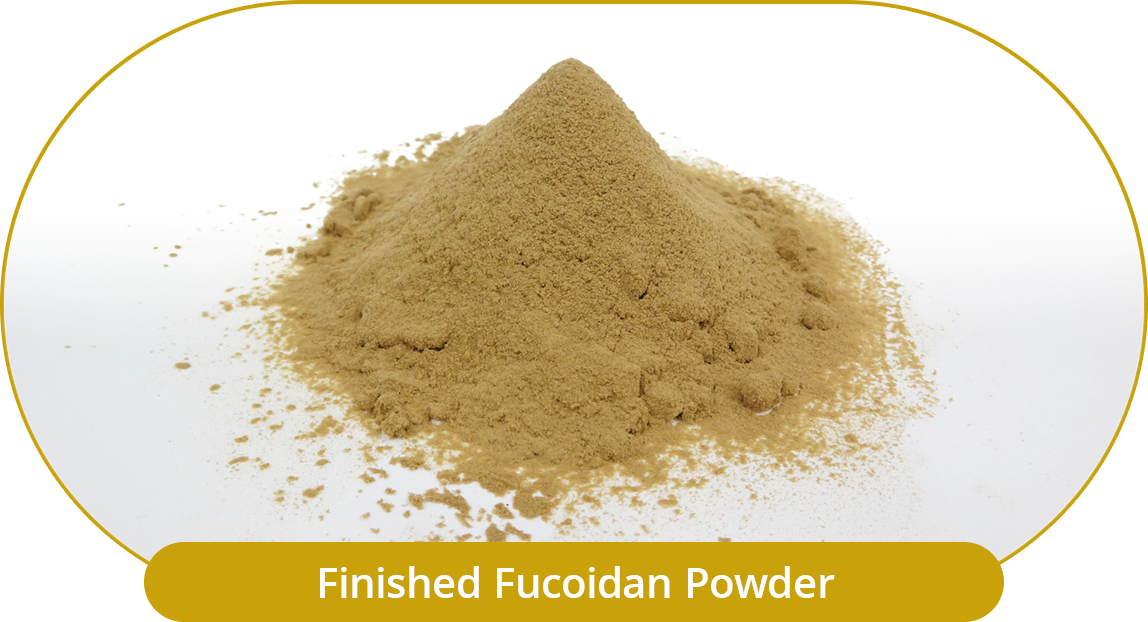
Customer Support (English Line)
- Toll-Free: 1-888-316-3033
- 310-944-9842
- Email Us


